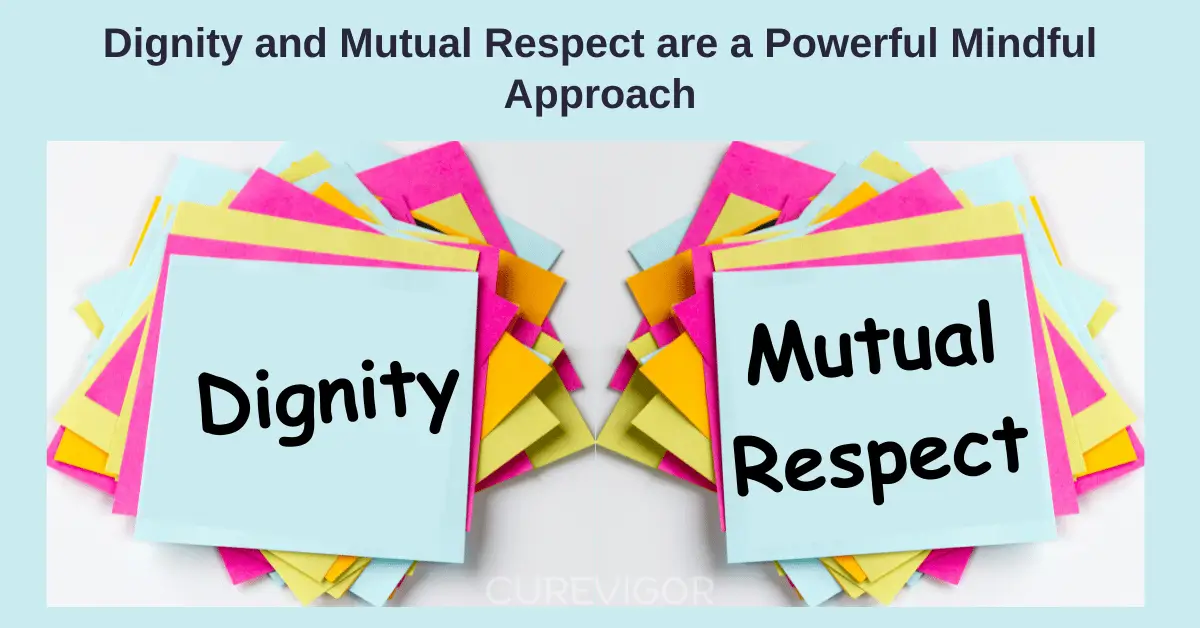Take the 16 Personalities Test and explore the most caring personality types. Find out how empathy, harmony, and emotional intelligence build stronger bonds.
Thank you for reading this post, don't forget to subscribe!Understanding Ourselves to Understand Each Other
Every person sees the world differently — and that’s exactly what makes human connection both fascinating and complex. The 16 Personalities Test helps us make sense of these differences.
Based on the Myers-Briggs Type Indicator (MBTI), it classifies people into 16 personality types shaped by how they think, feel, and interact with the world.
This framework isn’t about putting people in boxes — it’s about revealing patterns. It helps us understand why some people lead with logic while others lead with empathy, why some thrive in structure while others flourish in spontaneity.
Knowing these traits builds the foundation for self-awareness and mutual respect.
Why the 16 Personalities Test Matters
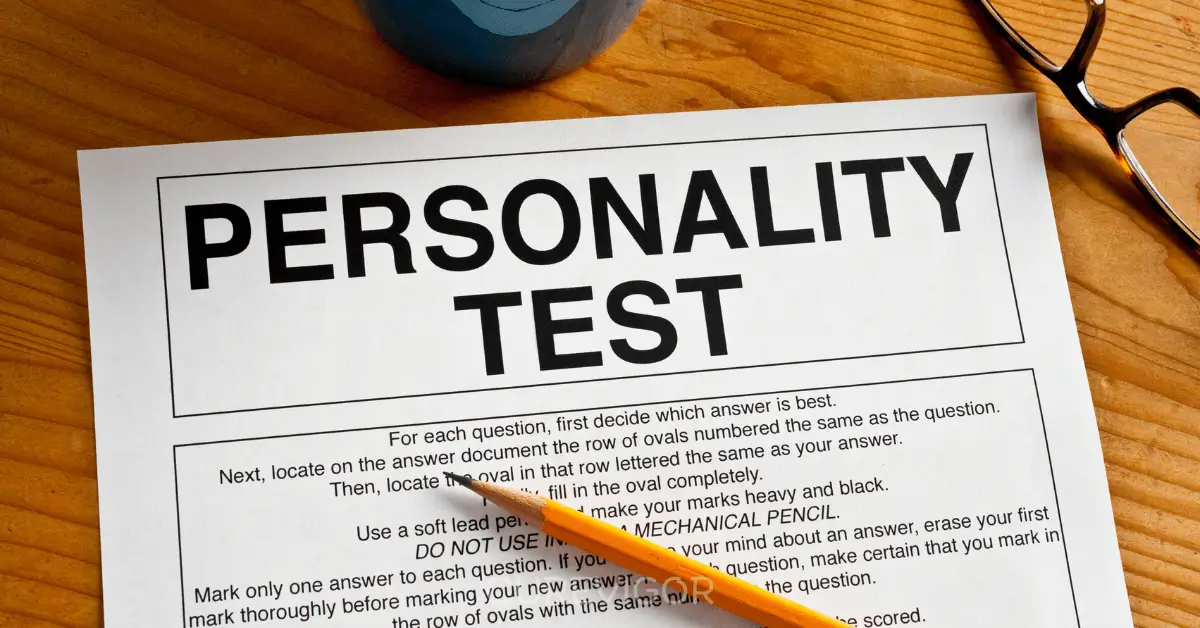
In workplaces, relationships, and communities, many conflicts stem from misunderstanding—not malice.
When you understand your own personality and the personalities of others, communication becomes clearer, trust deepens, and collaboration feels natural.
The 16 Personalities Test shines a light on these dynamics, helping us bridge emotional and social gaps that often divide us.
The Link to Social Harmony
At its core, this test highlights more than individual traits—it reveals how people contribute to collective balance.
Some types are natural innovators, others are caretakers, and a few are peacemakers who hold communities together.
These compassionate personalities, often found among the Diplomats (like INFJ and INFP), prioritize empathy, fairness, and emotional connection. They are the quiet architects of harmony in a noisy world.
The Compassionate Core: INFJ and INFP
Tired of workplace conflict and social division? There are personality types specifically wired for peace.
Discover the INFJ (Advocate) and INFP (Mediator)—the Diplomat types—who are most driven by social harmony, empathy, and emotional intelligence in the 16 Personalities framework.
Understanding their dynamics is key to unlocking deeper relationships and fostering collective well-being, both personally and professionally.
Among these, one personality type stands out for its unwavering commitment to kindness, empathy, and social cohesion—the Diplomatic and Compassionate Personality.
The Foundation of the 16 Personalities Test
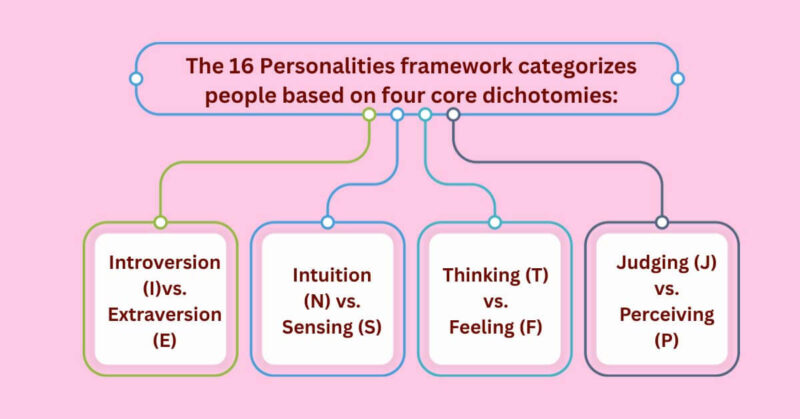
The 16 Personalities framework categorizes people based on four core dichotomies:
- Introversion (I) vs. Extraversion (E)
- Intuition (N) vs. Sensing (S)
- Thinking (T) vs. Feeling (F)
- Judging (J) vs. Perceiving (P)
Combining these traits results in 16 distinct personality types. The compassionate personality is often found within the Diplomat group, especially the INFJ (Advocate) and INFP (Mediator) types.
These individuals are emotionally intelligent, conflict-averse, and driven by values and purpose.
Each personality type falls into one of four groups: Analysts, Diplomats, Sentinels, and Explorers.
1. Analysts (Intuitive + Thinking)
- INTJ—The Architect: Strategic, logical, independent, and innovative.
- INTP—The Logician: Analytical, curious, open-minded; loves ideas and theories.
- ENTJ—The Commander: Bold, confident leaders who love efficiency and achievement.
- ENTP—The Debater: Energetic, clever, and thrives on intellectual challenges.
2. Diplomats (Intuitive + Feeling)
(Where most compassionate personalities are found)
- INFJ—The Advocate: Insightful, empathetic, and values integrity; aims to improve the world.
- INFP—The Mediator: Deeply idealistic and sensitive; driven by internal values and harmony.
- ENFJ—The Protagonist: Charismatic, inspiring, and altruistic; enjoys helping others grow.
- ENFP—The Campaigner: Enthusiastic, imaginative, and free-spirited; values connection and creativity.
3. Sentinels (Sensing + Judging)
- ISTJ—The Logistician: Responsible, practical, and loyal; values order and tradition.
- ISFJ—The Defender: Quiet, caring, and dedicated; strong sense of duty to others.
- ESTJ—The Executive: Organized, realistic, and leadership-oriented; likes structure.
- ESFJ—The Consul: Friendly, loyal, and community-focused; thrives on cooperation and harmony.
4. Explorers (Sensing + Perceiving)
- ISTP—The Virtuoso: Bold and practical experimenters; loves hands-on problem-solving.
- ISFP—The Adventurer: Gentle, sensitive, and creative; values personal freedom.
- ESTP—The Entrepreneur: Energetic and perceptive; loves action and excitement.
- ESFP—The Entertainer: Outgoing, fun-loving, and spontaneous; enjoys the present moment.
The Core Traits of the Compassionate Personality
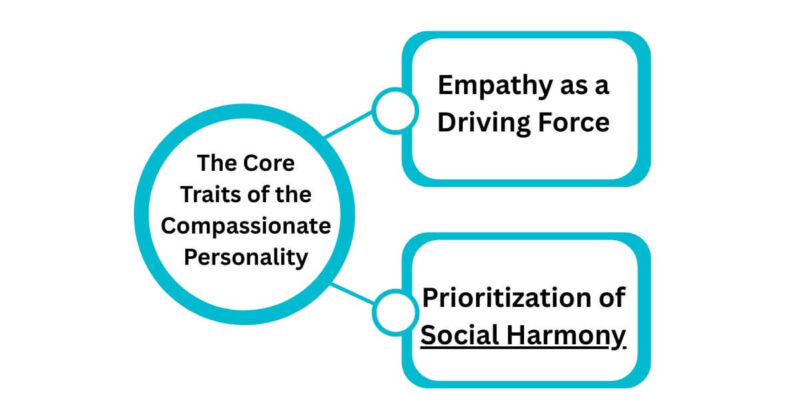
1. Empathy as a Driving Force
Compassionate personalities possess a high level of empathy. They can intuitively sense the emotions of others and adjust their behavior to accommodate feelings and needs. This trait makes them exceptional peacemakers and counselors.
Key Traits:
- Deep emotional awareness
- Attentive listeners
- Sensitive to injustice
2. Prioritization of Social Harmony
Maintaining peace is not just a preference—it’s a mission. These individuals avoid conflict unless necessary and work to unite others through diplomacy and patience.
To explore why this commitment is so vital, read our complete guide on social harmony.
Behaviors Exhibited:
- Mediating group tensions
- Avoiding aggressive confrontations
- Building consensus and mutual respect
Which Personalities from the 16 Personalities Test Embody Compassion?
Among the 16 types identified by the Personalities Test, two stand out for their emotional depth and devotion to social harmony — the INFJ (Advocate) and the INFP (Mediator).
Both belong to the Diplomat group, where intuition and feeling guide every decision, creating a balance between empathy and purpose.
INFJ — The Advocate: Visionary Empathy in Action
The INFJ personality type, identified by the Personalities Test, blends deep empathy with strategic thinking. These individuals see patterns in human behavior and use their insight to help others grow and heal.
INFJs seek meaning in everything they do. Their compassion is not passive; it’s intentional. Whether leading a project, mentoring a colleague, or advocating for justice, they infuse empathy into structure.
Core Strengths of INFJ:
- Visionary idealism rooted in practical impact
- Deep insight into emotional and social dynamics
- Strong moral compass and commitment to integrity
- Natural ability to guide others toward growth
INFJs bring compassion into leadership, advocacy, and mentorship roles—helping teams and communities thrive through empathy and structure.
INFP—The Mediator: Harmony Through Authenticity
According to the Personalities Test, INFPs are deeply attuned to emotion and authenticity. Their compassion stems from inner values that drive them to create meaning and unity wherever they go.
The INFP is the quiet force of compassion—gentle, creative, and guided by powerful inner values. They lead from the heart, seeking harmony not only around them but within themselves.
For INFPs, peace in the world begins with peace inside. They are deeply attuned to emotion, authenticity, and moral alignment. When they sense disconnection or injustice, their empathy compels them to heal, write, create, or mediate.
Core Strengths of INFP:
- Deep emotional sensitivity and empathy
- Imaginative problem-solving and creativity
- Unwavering loyalty to personal values
- Authentic expression through art, writing, or dialogue
INFPs excel in environments that value creativity, care, and emotional intelligence—often in writing, counseling, or community development.
Shared Essence: The Heart of Compassionate Leadership
Both INFJs and INFPs reflect the deeper purpose of the Personalities Test — understanding ourselves to connect better with others.
While INFJs channel compassion through structure and leadership, INFPs express it through authenticity and harmony. Together, they reveal how emotional intelligence creates peace in both personal and social spaces.
Real-Life Impact of the Compassionate Personality
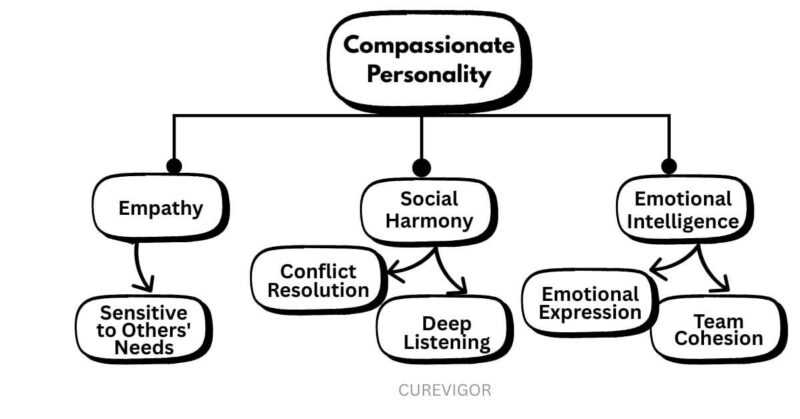
Compassionate personalities like INFJs and INFPs don’t just dream of harmony—they create it. Their empathy becomes a practical tool for leadership, mentorship, and healing.
In the Workplace
- INFJs often serve as the “emotional compass” of a team. They sense rising tension early and mediate before conflict escalates.
For example, an INFJ manager might notice subtle signs of burnout and reorganize workloads to prevent friction. - INFPs thrive in roles where authenticity and purpose drive results. In creative or mission-driven organizations, they bring moral clarity—reminding teams why their work matters.
They help align projects with shared values, turning routine collaboration into meaningful cooperation.
In the Community
- INFJs often volunteer for initiatives that promote social equity or community development, offering structured compassion—balancing empathy with organization.
- INFPs naturally build inclusive spaces, often in arts, counseling, or advocacy work. They bridge divides by listening deeply and translating emotion into understanding.
Value Added: Shows how compassion operates in action, making emotional intelligence a real-world advantage rather than a theoretical concept.
Challenges Faced by Compassionate Personalities
Empathy is a gift—but without boundaries, it can drain. INFJs and INFPs often absorb others’ pain, leading to emotional fatigue or self-doubt. These practices help restore balance and preserve emotional energy.
Actionable Self-Care Routines
- Boundary-Setting Scripts:
Practice gentle but firm phrases such as:
“I care about what you’re feeling, but I need a moment to process before I respond.”
This helps them engage without overextending. - Emotional Cleansing Exercises:
At the end of the day, visualize releasing others’ emotions like water flowing off your hands. Writing short “energy check” journal entries also helps separate personal feelings from external ones. - Grounding Through Sensory Reset:
INFJs and INFPs spend a lot of time in their heads. Walking in nature, focusing on textures, sounds, or smells resets their nervous system. - Scheduled Solitude:
Set intentional “quiet hours” weekly. Time alone helps these types recharge and reconnect with their inner values. - Micro-Reflection Routine:
Before saying “yes” to help, pause and ask: “Is this my responsibility or my empathy reacting?” It’s a small habit that prevents burnout.
Value Added: Turns compassion into a sustainable strength, not an emotional burden.
How to Support and Communicate with Compassionate Personality Types
Living or working with INFJs and INFPs requires emotional awareness and mutual respect. These individuals don’t just listen—they feel what you say. The best way to connect is with authenticity and care.
Best Practices for Partners and Colleagues
- Use “I” Statements:
Express emotions in personal terms—“I feel overwhelmed”—rather than accusations. This invites empathy instead of defense. - Create Safe Spaces for Expression:
Encourage open dialogue where emotions aren’t dismissed as “too sensitive.” INFJs and INFPs open up only when they sense emotional safety. - Balance Depth with Lightness:
They value deep talk, but constant intensity can exhaust them. Mix meaningful conversations with laughter and play. - Respect Their Decision-Making Time:
They need reflection before making choices. Patience shows trust, and that trust becomes the glue of your relationship. - Offer Genuine Appreciation:
They notice effort. A sincere “I really value how you handled that” goes a long way toward emotional connection.
Value Added: Gives readers (especially partners and coworkers) practical communication strategies that build stronger bonds.
Interplay of Traits: Diplomats vs. Sentinels on Harmony
Not all harmony-seekers express it the same way. Diplomats (F types) like INFJs and INFPs pursue peace through empathy and values, while Sentinels (J types) like ESFJs and ISFJs achieve it through structure and duty.
| Trait | Diplomat (e.g., INFP) | Sentinel (e.g., ESFJ) |
|---|---|---|
| Motivation for Harmony | Emotional alignment and authenticity | Stability and shared responsibility |
| Conflict Approach | Mediates emotionally, seeks mutual understanding | Restores order, reinforces group norms |
| Leadership Style | Values-driven and introspective | Organized, dependable, and service-oriented |
| Challenge | May avoid conflict to protect feelings | May prioritize conformity over emotional truth |
Both types uphold harmony—but one does so through heart, the other through structure. Together, they represent the emotional and practical pillars of human cooperation.
FAQs About the Personalities Test
Q. What is the rarest 16 personality type?
The INFJ (Advocate) is considered the rarest personality type in the 16 Personalities Test, making up only about 1–2% of the population. INFJs combine deep empathy with visionary thinking, often feeling a strong sense of purpose and moral responsibility.
They see beneath the surface of situations, connecting emotion with insight. This rare balance of compassion and structure makes them powerful, quiet leaders. Their rarity often lies in how deeply they think, feel, and care all at once.
Q. What personality type is the most compassionate?
The most compassionate types in the 16 Personalities Test are often the INFJ (Advocate) and INFP (Mediator). Both are guided by empathy, authenticity, and a desire to help others grow.
INFJs show structured compassion—they act on their ideals—while INFPs radiate emotional warmth through understanding and acceptance.
Their kindness is rooted in purpose, not just emotion, making them the emotional glue in relationships, communities, and teams. Compassion is their compass, not just their trait.
Q. What does the 16 Personalities Test do?
The 16 Personalities Test helps people understand how they think, feel, and interact with the world. Based on the Myers-Briggs Type Indicator (MBTI), it analyzes four key preferences: energy source, information processing, decision-making, and lifestyle.
The result places you into one of 16 personality types, each offering insights into strengths, challenges, and communication styles. It’s not about labeling—it’s about awareness. By understanding yourself, you can connect better, lead wisely, and create genuine harmony.
Q. How rare is the ENFJ personality type?
The ENFJ (Protagonist) personality type is moderately rare, representing about 2–3% of people according to the 16 Personalities Test.
ENFJs are charismatic, empathetic leaders who thrive on helping others reach their potential. Their energy is magnetic—they inspire confidence and foster unity wherever they go.
Though not as rare as INFJs, their combination of emotional intelligence and leadership vision makes them stand out in any group. They lead with heart, not ego.
Q. Do ENFJs have high IQ?
While the 16 Personalities Test doesn’t measure IQ, many ENFJs display strong emotional and social intelligence—skills often just as valuable as cognitive IQ.
They excel at reading people, navigating group dynamics, and motivating others with precision.
Their intelligence shines through empathy and communication, allowing them to understand not only ideas but people.
ENFJs tend to connect intellectual insight with human purpose, turning knowledge into positive action and collective growth.
Q. Can ENFJs fall in love?
Absolutely. ENFJs fall in love deeply and wholeheartedly. Guided by empathy and loyalty, they invest emotionally in their relationships and see love as both connection and commitment.
When they love, they give generously—through support, encouragement, and shared purpose. However, they sometimes give too much, forgetting to protect their own emotional boundaries.
True love for an ENFJ means mutual respect, open communication, and growth that uplifts both partners.
Conclusion on the Personalities Test
In an increasingly complex world, personalities prioritizing social harmony bring healing, unity, and emotional intelligence.
Whether they advocate for justice or offer a listening ear, their compassion shapes a more humane society.
We must recognize and elevate the role of these personalities across all spheres—education, leadership, healthcare, and community development—because they are the glue that holds relationships and systems together.
Get more Health and Wellness Tips.
You might like to read:


